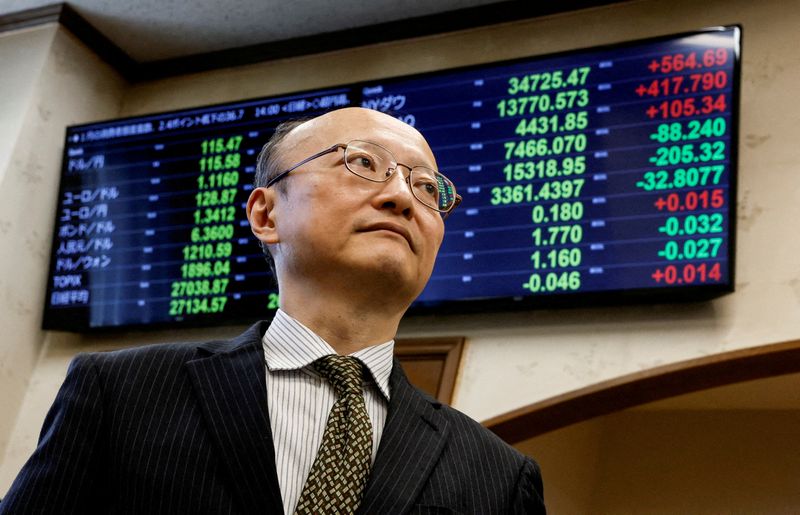By Makiko Yamazaki and Yoshifumi Takemoto
TOKYO (Reuters) -Japan is always ready to take action against excessive market moves, Tokyo’s top currency diplomat Masato Kanda said on Monday, as the yen fell nearly 160 against the dollar, making the market cautious about the prospect of new intervention.
“We will not comment on daily currency movements as such comments may have unforeseen effects on the market, but we are always ready to take appropriate action if there are excessive movements,” Kanda told reporters.
Japanese Finance Minister Shunichi Suzuki echoed Kanda in warning against excessive measures, saying Tokyo “would like to respond appropriately if necessary.”
Suzuki declined to comment on whether he views current market movements as excessive, but emphasized that it is desirable for currency movements to be stable and reflect fundamentals.
The yen was under pressure following the Bank of Japan’s decision this month to delay tapering bond stimulus until its July meeting. The dollar was trading at 159.87 yen early Monday.
Kanda, Deputy Finance Minister for International Affairs, said he was aware that the yen’s fall to 160 against the dollar has increased market caution about intervention, but noted that authorities had not set specific levels have in mind when to intervene.
The market widely views 160 yen per dollar as a line in the sand for the authorities. Japan spent about 9.8 trillion yen ($61.64 billion) to lift the currency from a 34-year low of 160.245 per dollar on April 29.
However, these steps have failed to reverse the yen’s weakness, partly due to the large interest rate differentials between Japan and the US.
Kanda also said Japan’s addition to the U.S. Treasury Department’s currency manipulation monitoring list had “absolutely no impact” on Tokyo’s policy options.
In a U.S. Treasury Department report issued Thursday, Japan was added to the foreign exchange monitoring list, joining six countries that were on the previous list.
“Japan has policy space to ensure that exchange rates move in a stable manner and reflect fundamentals,” Kanda said.

Problems with currency intervention arise when a country tries to weaken its currency to boost exports, but “what we are doing is the exact opposite of that,” he added.
“We will respond decisively to moves that are too fast or driven by speculators,” he said. “If no action is taken on such measures, people, businesses and households would suffer.”


